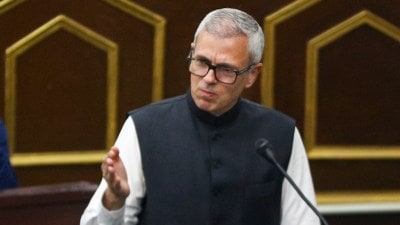Indo-US open sky deal ready for take-off
The United States and India have agreed on the broad contours of an open skies agreement that is expected to be signed next month. While the...

The United States and India have agreed on the broad contours of an open skies agreement that is expected to be signed next month. While the agreement is similar to the one Washington has signed with 66 other countries, India has secured certain modifications to ensure that the benefits do not go to international carriers with which US airlines have a tie-up.
For this, Civil Aviation Minister Praful Patel today said on his return from the US, the privileges enshrined in the agreement will be extended only to airlines originating in the US. ‘‘The traffic between India and the US has registered an exponential growth and the benefit should go to carriers from both countries. We have ensured that this is not passed on to another carrier that may have a code-sharing arrangement.’’
This apart, Patel said, the US has more or less agreed to honour the security audit carried out by Indian agencies on the basis of guidelines prescribed by the International Civil Aviation Organisation. ‘‘We have faced the problem of terrorism for a longer time and our audits are properly carried out. They should agree on this.’’
It may be noted that the US proposal had sought to put in place its own safety and security guidelines in the context of the 9/11 attacks. The draft of the agreements was broadly agreed on during the delegation-level talks that followed the meeting between Patel and US Transportation Secretary Norman Y. Mineta in Washington.
From what is envisaged, the agreement will open up all destinations to the respective carriers removing barriers on the number of flights and points of call. ‘‘The flights will be mounted on the basis of consumer demand. Air India, for instance, is keen on starting services to Washington, San Fransisco and Houston.’’
According to Patel, the Maharaja will stand to gain in a big way. ‘‘Air India will soon have more aircraft to start these services. The whole plan to get long haul aircraft for Air India is based on plans to expand operations to the US.’’
Meanwhile, his Ministry has asked all public and eligible private carriers to submit detailed plans of their proposed international operations over the next three years.



- 01
- 02
- 03
- 04
- 05




























